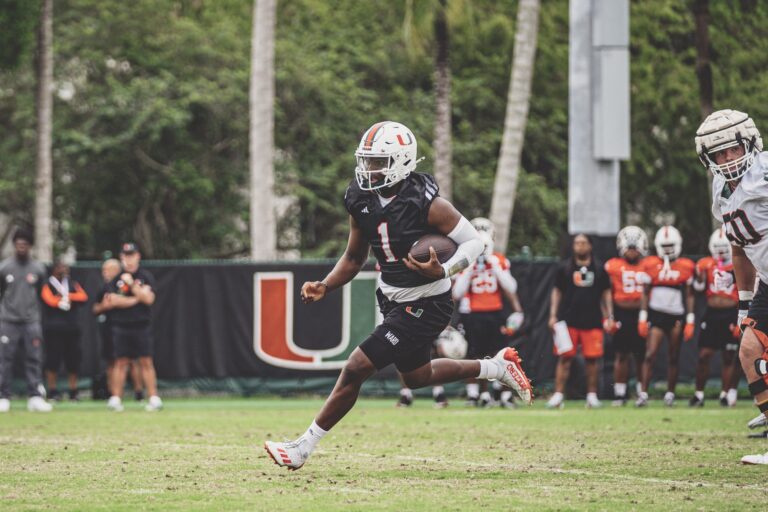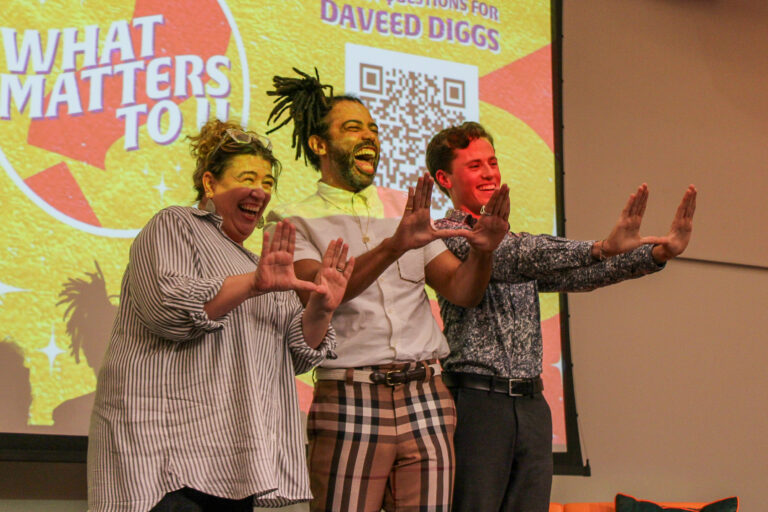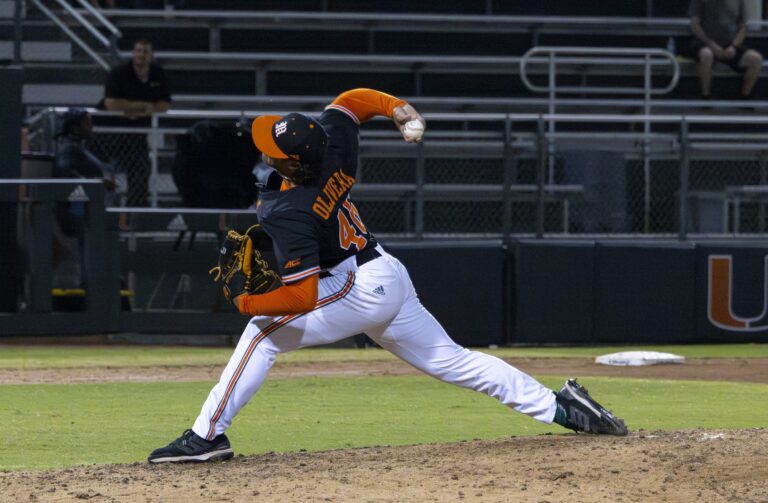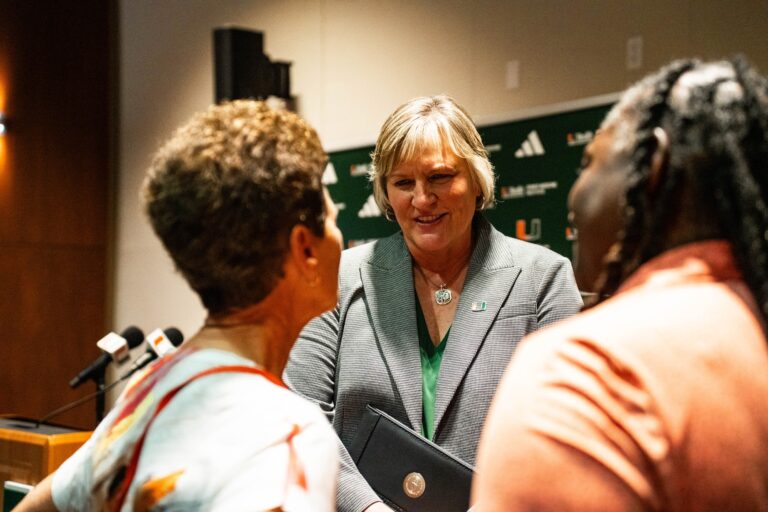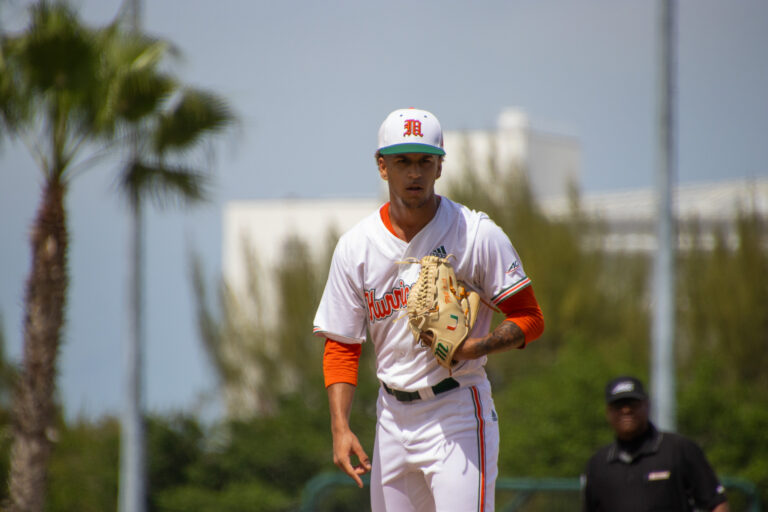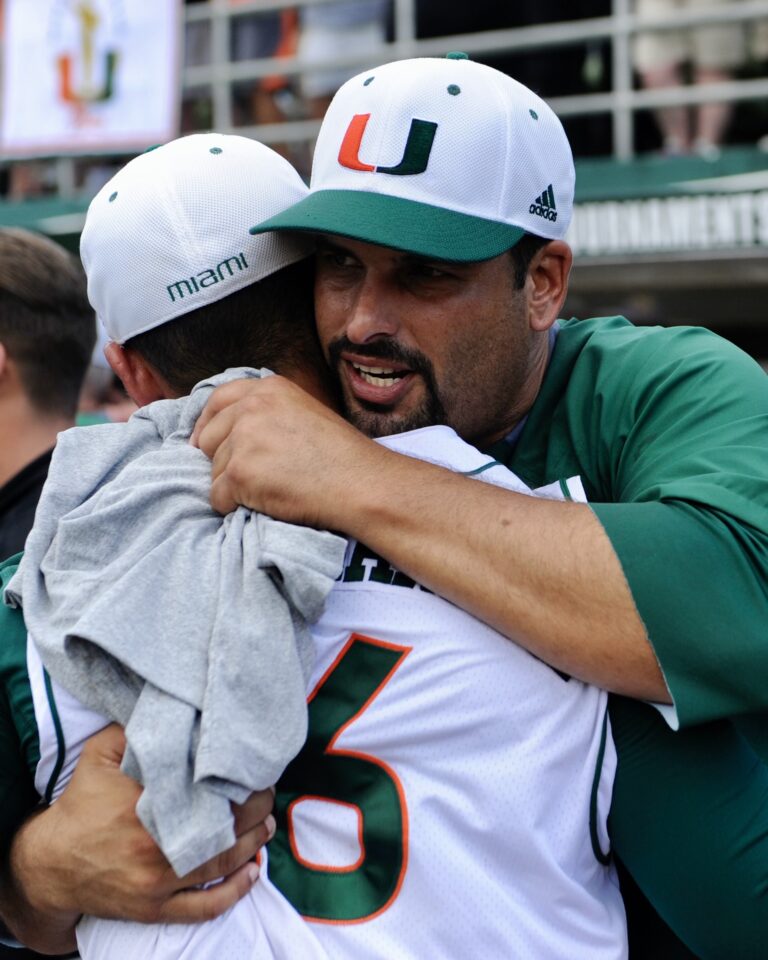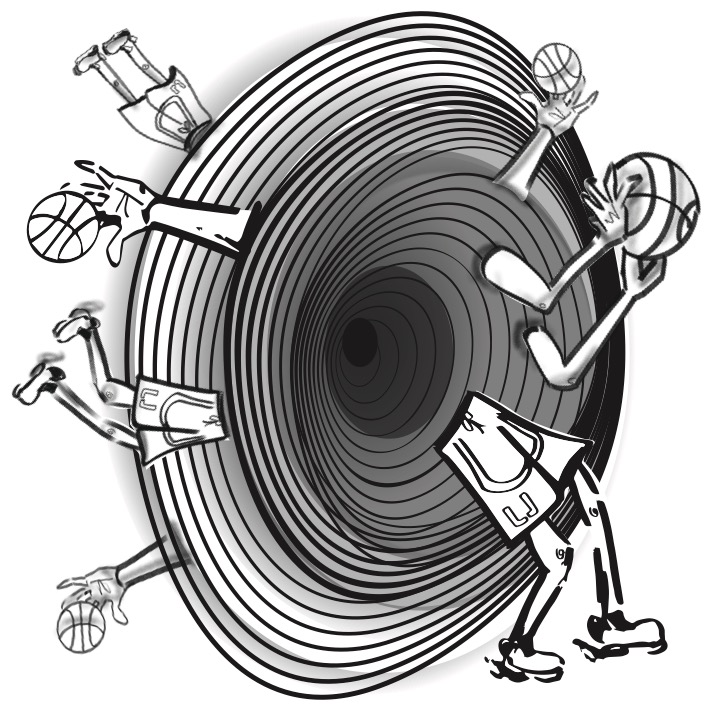LATEST ARTICLES
Today is National Unplugging Day—Here’s why you should join in
Department of Justice confronts Apple monopoly in historic lawsuit
Apple is currently grappling with a historic lawsuit issued by the Department of Justice, alleging that the tech giant has consciously tried to maintain a monopoly over the iPhone market.
The lawsuit, issued on Mar. 21, accuses Apple of violating Section 2 of the Sherman Act by using their monopoly to charge extravagant prices for their iPhones, which normally range from $450 to $1500.
“We allege that Apple has maintained monopoly power in the smartphone market, not simply by staying ahead of the competition on the merits, but by violating federal antitrust law,” U.S. Attorney General Merrick B. Garland stated in the lawsuit. “If left unchallenged, Apple will only continue to strengthen its smartphone monopoly.”
The DOJ alleges that in order to maintain this monopoly, Apple has employed key tactics to skillfully disarm their competition and dominate the market.
“For years, Apple responded to competitive threats by imposing a series of ‘Whac-A-Mole’ contractual rules and restrictions that have allowed Apple to extract higher prices from consumers, impose higher fees on developers and creators, and to throttle competitive alternatives from rival technologies,” Assistant Attorney General Jonathan Kanter said .
These rules and restrictions have been selectively imposed on certain technologies that Apple sees as threatening to their monopoly.
In doing so, Apple has consciously blocked innovative “super” apps, suppressed mobile cloud streaming services, excluded cross-platform messaging apps, diminished the functionality of non-Apple smartwatches and limited third party digital wallets.
“Apple is not so much worried about competing directly against smart wallets, smart watches, super apps, and cloud-based apps, but they are worried that all those things together could make it so the underlying technology means nothing,” said John Newman, professor of law with an expertise in antitrust and competition law at the University of Miami.
Super apps, like Alipay and Wechat, appear to be Apple’s biggest threat. These apps, developed by third parties, allow users to access many different applications all in the same app, without having to remember multiple passwords and switch to different apps.
For example, a user could order food delivery, request money from their roommate for it, and then check the doorbell camera to see when the delivery arrives all in the same application.
Depending on how fast these super apps progress and develop, they could convince users to ditch Apple’s ever-increasing phone prices in favor of a cheaper phone capable of running “super apps.”
“The simplest way to explain it is that you have a monopoly over the horse drawn carriage market in 1910,” Newman said “The theory of the complaint is not that the horse-drawn carriage monopolist is fighting down other horse-drawn carriage monopolists. It’s more that the horse-drawn carriage monopolist is seeing the rise of cars and they’re going over and dynamiting the car factory.”
The DOJ is not unfamiliar with massive tech lawsuits and in their lawsuit they specifically say, they are modeling this lawsuit after a case from over twenty years ago.
The lawsuit they are citing was in 1998, when the DOJ alleged Microsoft was violating antitrust laws, in an effort to monopolize the market for the Windows operating system.
To do this Microsoft restricted the use of other web browsers and media players on their Windows operating systems.
“Microsoft was a monopolist in operating systems. They didn’t care about having to compete against web browsers, but if web browsers make it so that people are not sensitive to which operating system they use, that is a bad thing for Microsoft,” Professor Newman said, “All of a sudden Microsoft will be unable to charge $400 bucks for Windows, if all people care about is having an operating system that can boot up and open an app.”
This strategy is similar to what the DOJ believes Apple has been doing over the past couple of years. Unfortunately for Apple, Microsoft was found guilty of violating the Sherman Act and after a semi-successful appeal, they were forced to settle.
Just as this isn’t the DOJ’s first big tech battle, this is also not Apple’s first rodeo battling the federal justice system.
In 2010, Apple and five other tech companies settled with the DOJ after allegedly colluding to prevent skilled employees from getting better salaries.
Subsequently, in 2016, Apple was forced to pay $450 million to settle DOJ allegations that they colluded with five publishers to increase e-book prices.
The most recent lawsuit was filed in a federal court in New Jersey and follows the Biden Administration’s recent pattern of attempting to regulate big tech.
Given that a judge has not been assigned to the case yet, the lawsuit is estimated to take multiple years in court and will require Apple to hire hundreds of lawyers in efforts to defend their technology empire.
Cam Ward stars in Miami’s 2024 Spring Game
The University of Miami concluded its spring football training on April 13, 2024, with the annual Spring Game. The classic offense versus defense game was the first time Miami fans could see the newest 2024 recruits and transfers play with the team. The match highlighted areas of success, improvements and focus.
Tackling the offensive squad first, who took home a win for the “white” team with a final score of 30-14, sparked much attention amongst the crowd. Quarterback Cam Ward completed 19 of 24 passes, adding up to 324 yards, and connected for three touchdowns, bringing Miami fans to their feet.
“I feel very comfortable, especially behind the offensive line. Those five guys up front, you know, they got the hardest job on the field each and every day,” Ward said. “They got to come with the right mindset. And they’re going to be the reason we win a lot of football games.”
Ward is gaining confidence in the line protecting him and has grown increasingly more comfortable throwing to Xavier Restrepo and Isaiah Horton, two of the team’s returning wide receivers. He connected with Restrepo in the second quarter, throwing a long pass down the right side, and Restrepo finished the pass and took it into the end zone.
“A guy like that with you out there, a receiver who knows how to win vs. man, who can find soft spots in zone, is good for our offense,” Ward said.
A third-year sophomore, Horton entered the game with a bang, scoring a touchdown on his first drive, and the connection between him and Ward grew stronger as the game progressed. Head coach Mario Cristobal praised Ward for his talent and leadership both on and off the field; his contributions to the team have greatly enhanced the community between players.
“Isaiah Horton had a great spring. I thought all the quarterbacks did some good things, but Cam certainly,” Cristobal said.
Every quarterback demonstrated their arm strength, throwing deep passes but occasionally coming up with an incomplete pass by the receiver. Jacurri Brown, Reese Poffenbarger, Emory Williams and Judd Anderson took the field with determination, proving dedication to the team.
They each stood out for their own respective reasons: Brown with a touchdown pass to tight end Jackson Carver, Williams with a touchdown to end the first half and Poffenbarger with a long completion as well.
The ‘Canes defense played fast and intense even though there were some gaps in consistency. A few missed tackles allowed for a touchdown and many first downs.
Defensive end Marquise Lightfoot, a 2024 recruit who has yet to attend senior prom or graduation, picked up a fumble recovery and recorded a sack.
“I just need to be that dominant force on the outside, especially with this aerated offense. We have deep balls down the field, you know third down single field receiver, they’re going to single me out. I have to go make those plays. Not just me, but the team for the community, for everybody. It’s bigger than just me. That’s how I think about it. And that’s what I think about when I play,” Lightfoot said.
Akheem Mesidor was on the sidelines during the game, recovering from his double-foot surgeries. Alongside this defensive end at the game were University of Miami Football Hall of Famers Andre Johnson and Michael Irvin, representing the program’s alumni that attended the game. The day before, the two attended a UM football alumni event.
“Andre Johnson spoke very powerfully, and then Michael Irvin took the stage and it really impacted our players. We needed to see that,” Cristobal said. These historical guys showed the team what it means to play for Miami, and how they are ready to see this squad produce future hall of famers also.”
“I came out today and saw a lot. Some plays that were positive and some obviously that were not as positive, but guys did compete, and we got a lot of plays in. A lot to work and look off of film and to go from there and get ready for the off-season.” Cristobal added.
Though the offense was referred to as “vanilla,” both sides of the ball showed fans, alumni, students and future recruits just a taste of what to expect for next season. However, there is no rest for this Miami team. The opening game at rival Florida on August 31 is already on their radar. Until then, they will take it day by day, with leaders like Ward stepping up to advance the program.
Faye Webster creates magic at Miami Beach Bandshell
Twenty-six-year-old indie artist Faye Webster took to the stage at Miami Beach Bandshell on March 27 to complete the second show of her U.S. tour. Webster sang songs from her latest album, “Underdressed at the Symphony.”
Although she only released the album on March 1, fans easily recognized the songs and proved their love with each memorized lyric.
The singer-songwriter emerged from backstage surrounded by a cascade of purple lights that engulfed the whole room. The beginning notes of “But Not Kiss” encompassed the small theater as she took her place in the center, surrounded by her lively band members.
With mellow, mesmerizing music best described as dreamy indie-folk, Webster’s voice was faint and angelic, but energies were high as loyal fans sang — and even screamed — along with every word.
The music provided a sense of stillness and relief for fans as they swayed along to songs such as “Right Side of My Neck” and “In a Good Way.” Stunning backdrops with flickering flames and starry constellations transported the room into a dream-like realm.

Webster alternated between piano and guitar, which provided beautiful accompaniments to her voice. Her mastery of the three cements her as a one-of-a-kind artist with her own unique sound. It is no surprise that the show was sold out.
However, several attendees were critical of the brevity of the concert, as it was only one hour long. Webster’s discography is not extensive, but the concert could have benefitted from a few more songs.
Despite the brief duration, the energy and passion exchanged between Webster and her fans created an atmosphere of intimacy and connection that is rarely found in larger venues. It wasn’t just a performance: it was a shared moment of vulnerability and emotion.
Webster’s relatable lyrics offer a heartfelt representation of the human experience, especially that of a young woman, and fans feel seen and understood by her work.
Her ability to captivate an audience with her soulful voice and introspective lyrics is a testament to her talent as a musician and performer.
As the concert drew to a close and the final notes of “Kingston” faded into the night, I was left impressed by Webster’s ability and talent.
Daveed Diggs encourages UM students to take advantage of the space given to create
Whether he’s rapping on the Broadway stage or voicing a character in a children’s movie, when it comes to entertainment, Daveed Diggs has done it all. Students had the chance to attend a conversation with the acclaimed rapper and actor at the “What Matters to U” Spring discussion on Thursday.
What Matters to U is a UM student government agency dedicated to bringing high-profile figures to discuss topics relevant to the UM community.
In the conversation moderated by B.F.A. musical theatre senior Keenan Lyons and assistant professor Jessica Bashline, Diggs shar1ed insights regarding his community, creativity and experiences with diversity in the arts.
Having explored his creative passions at Brown University, Diggs shared the importance of taking advantage of university resources to consistently create — even if it’s terrible.
“School is about learning, it’s about making things,” Diggs said. “Whatever your thing is, produce as much as you can while you’re here — but you shouldn’t worry about it being good.”
“You should probably never worry about it being good, but really not when you’re here. Not when you’re learning. Because learning is about learning, and one of the best ways to learn is to make something terrible.”
Diggs is best known for originating the roles of Marquis de Lafayette and Thomas Jefferson in the Broadway-hit musical “Hamilton.” He won several awards for his performance, including the Tony Award for Best Featured Actor in a Musical and the Grammy for Best Musical Theater Album.
Diggs also voiced Sebastian in the 2023 live action version of “The Little Mermaid,” Spruce in “Trolls Band Together” and played a recurring role in the TV series “black-ish.” He is also a vocalist for the hip-hop group Clipping, set to begin touring Europe at the end of the month.
Raised in Oakland, Calif., Diggs recalls always having been in the art scene — whether he was visiting the record store or performing slam poetry, the local community shaped his creative dialogue.
His experiences in the Bay Area would eventually influence how he portrayed the character Collin in “Blindspotting.” The movie-later-turned-TV-show that Diggs produced and starred in told the story of a parolee with three days left on his sentence who witnesses a police shooting that threatens to ruin a lifelong friendship.
“We wrote ‘Blindspotting’ right around the time when Oscar Grant was murdered in Oakland, anybody in the town is dealing with these things already,” Diggs said in an interview with The Hurricane. “That’s where we had to meet our characters. Collin’s genuinely afraid of being murdered by the police — and so was I when I was that age and so am I now.”
Diggs left the West Coast for college, heading to Providence, R.I., after being recruited for the track team at Brown University, where he would eventually pursue performing arts.
“I didn’t really mean to choose theater as my major. My college was one of those places where you can take whatever, and a lot of people want to create a major when they go there,” Diggs said. “So that’s what I thought I was doing — I was teaching a lot at the time, so I was going to do this arts education thing. But then, I looked around and had finished all of the theater major concentration.”
He had visited the school with recruiters the spring before his freshman year, something he joked was a “trap” because at the time the campus was beautiful, but surprised him in the winter.
Coming to the University of Miami for competitions was a highlight in his college experience, as he looked forward to the warm weather.
Before he pursued acting, Diggs taught poetry to middle schoolers in the Bay Area where he grew up.
“I was going into schools and working with the English and social studies teachers to design my curriculum. I would figure out what they needed to touch on during the year, and on my first day of class, I would ask everybody what they were listening to,” Diggs said.
“I was listening to everything at the time, so I would probably know it. But the stuff I didn’t know, I would go home to study and I would start developing my lessons based on that. The great thing about performance poetry back when I used to do that was it comes out of the community and that’s why I was into it.”
In his professional career, Diggs doesn’t shy away from projects that attract commentary. Whether it was diversifying the stage on Broadway or taking roles in shows like “black-ish,” Diggs uses his talents to advocate for social change. He shared insight into what it was like being a part of these projects.
“The thing that I love that Lin [Manuel-Miranda] always said about Hamilton was that as opposed to the culturally radical casting that people were commenting on — for him, he needed people with a particular set of skills to pull off the show he had written, and these were his friends who had those skills and we happen to look like this,” Diggs said.
He even noted that by diversifying projects and adding perspectives, stories are better told.
To close the conversation, Diggs offered a piece of advice to the aspiring artists and creatives in the room.
“You have to sell your perspective,” Diggs said. “The only thing I have to offer is my personal tastes and take on something.”
The moderators then led a live Q&A, where Diggs answered students’ questions ranging from funny memories during his time in Hamilton to his favorite projects that in his opinion “no one cared about.”
As is WMTU tradition, the moderators taught Diggs how to throw up the U to close out the night.
Early offense from FSU proves too much as Seminoles sweep Miami, taking game three 6-4
After dropping the first two games against the No. 10-ranked Florida State Seminoles, the Miami Hurricanes desperately needed a win on Saturday. Unfortunately for them, the FSU offense struck quickly, scoring five runs in the first three innings and mounting a big enough lead that the ’Canes could not overcome.
After UM struck first in the top half of the first inning, FSU immediately responded and took the lead by scoring two in the bottom half.
Max Williams and Cam Smith got things going for FSU, leading the game off with back-to-back doubles. Smith later came in to score on an RBI groundout by Jaime Ferrer, putting Florida State up 2-1.
Both offenses continued to threaten early, as in response to FSU’s bottom of the first, Miami tied the game right back up with a Jacoby Long RBI single to drive in Jack Scanlon.
Shortly after, in the bottom of the third, is when FSU pulled away and never looked back. Williams and Smith came up big again, as Williams hit an RBI double, followed up by a Smith home run to drive him in and extend the Seminole lead up to three.
UM starter Herick Hernandez did not have his best stuff at all on Saturday afternoon. Hernandez, who led Miami’s pitchers in strikeouts coming into this weekend, was only able to log three punchouts, indicating that he was not on his game.
Hernandez was only able to last four innings, giving up five hits, three walks and five runs, which pushed his season ERA up to 6.39.
After Hernandez was pulled, the Hurricanes’ pitching seemed to settle in. The rest of the game was pitched by Myles Caba and Nick Robert, who combined to throw four innings and only give up one run, really giving Miami’s offense a chance to make a late comeback.
In the ninth inning, Miami was able to send the tying run up to the plate, and after Dorian Gonzalez Jr. singled up the middle to cut the lead to just two, Lorenzo Carrier stood at the plate, representing the go-ahead run.
The comeback effort fell short, as Carrier lined out to the shortstop to end the game.
Overall, it was not UM’s best day at the plate, as it slashed .250 as a team, making it almost impossible to beat an FSU team that scores over nine runs a game.
A big reason for the lack of offensive production on Saturday can be attributed to stars Daniel Cuvet and Jason Torres, who combined to go 0-of-8 and usually carry the load on offense.
Gonzalez and Long were the only Hurricanes with multiple hits, as Long went 2-of-4 with a walk, and Gonzalez went 3-of-5 with two RBIs.
After getting swept in back-to-back conference series, next weekend’s home series against Louisville will be a huge bounce-back opportunity for Miami, which is looking to get back on track before it gets too late in the season.
Before that, the ’Canes will take on Bethune-Cookman on Wednesday at 6 p.m. at Mark Light Field. Likely manning the mound for UM on Wednesday will be Ashton Crowther, who is looking to follow up a solid start against FAU last week.
‘It doesn’t happen overnight’: Tricia Cullop introduced as Hurricanes head coach
Tricia Cullop is ready to build something special at the University of Miami.
The Miami Hurricanes officially welcomed Cullop as the women’s basketball program’s new head coach with a press conference on Thursday, April 11.
Cullop joins the Hurricanes boasting an impressive 353-169 record during her 16 seasons at Toledo, including an 86-17 record over the past three seasons. But it wasn’t just her work on the court that put her on Miami’s radar.
“She recruited well, she developed well, she scheduled tough,” UM athletic director Dan Radakovich said. “Tricia has made an impact everywhere she’s been, and I have no doubt she will continue to do that at the University of Miami.”
Cullop, an Indiana native, has been in college basketball since playing for Purdue from 1989 to 1993. Since her playing days ended, she’s climbed her way up the coaching ranks, working as an assistant at Radford, Long Beach State and Xavier before amassing nearly 25 years of head coaching experience at Evansville and Toledo.
Though Collup commanded the respect of the room from the moment she stepped up to the podium, a different name seemed to hang over the crowd: her predecessor, Katie Meier, who spent nearly two decades with the program before stepping down on March 21. Her 365 wins are the most in program history, and her surprise trip to the Elite Eight last season solidified her legacy as one of the most notable figures in all of Miami Athletics.
“It won’t be easy to follow in her footsteps,” Cullop said of Meier. “She did an amazing job in her tenure building this program into something really special.”
Step one for Cullop will be trying to retain players Meier originally brought into the program. Four have already entered the transfer portal, including Ja’Leah Williams and Lashae Dwyer, who were third and fifth on the team in minutes this past season, respectively.
“I do feel that we’ve got a good chance to keep a lot of the kids that are here, but it’s an ongoing process,” Cullop said. “I’m trying to give them some space, knowing that they just went through a gut-wrenching, heartache moment in losing somebody that they care about.”
No matter who suits up for the Hurricanes next season, Cullop wants to establish a strong identity on both sides of the ball. When detailing her vision for the team next season, her eyes lit up as she characterized a defensive scheme designed to frustrate opponents with its tenacity. She went on to describe a balanced offense, emphasizing ball movement and smart shot selection.
Cullop’s Toledo team certainly embodied that vision. Last season, the Rockets led the Mid-American Conference in assist-to-turnover ratio, total assists, free-throw percentage and scoring margin. The team also ranked second in the conference in points per game, field goal percentage and turnover margin.
“You’re gonna enjoy it,” she said.
But one of the most crucial parts of carrying on Katie Meier’s legacy is continuing to build the fanbase she worked so hard to develop during her 19 years at Miami. When Meier first arrived in Coral Gables, the Hurricanes drew just over 1,000 fans per game. By her final season, that number had jumped to over 2,500.
Cullop acknowledged the challenge of packing the stands, especially outside of the Midwest, a region known for a deep tradition of supporting women’s athletics.
“We’re going to have to get out in the community and establish relationships,” she said. “People don’t come because of a billboard or an advertisement; they come because something in their heart draws them to come to a game.”
Despite these challenges, Cullop is confident that she will be able to pack the Watsco Center stands. And her time in Toledo backs it up: in her final season, the Rockets brought in nearly 4,500 fans per game, a mark that not only led the MAC but ranked 33rd in the nation.
Cuvet’s two homers not enough for Miami, drop second game against FSU 11-7
After dropping a close game in the opening game against the No. 10 ranked Florida State Seminoles (29-5, 9-5 ACC), the Miami Hurricanes (16-18, 6-11 ACC) looked to even the series up Friday night at Mike Martin Field in Tallahassee.
Despite another strong effort from Daniel Cuvet, Rafe Schlesinger and the Hurricanes pitching staff were outclassed by the Seminole offense, dropping the second game of the series 11-7.
The Canes offense started scoring early in the game. At the top of the first, Dorian Gonzalez Jr. laced a double down the left field line, bringing Cuvet home from the first.
The Seminoles responded minutes later, as Jaime Ferrer lasered an RBI double to left field to even the score at one. Two batters later, Marco Dinges brought FSU in front with a single down the right-field line.
Down three in the top of the third inning, Cuvet was due up with runners on first and second against FSU’s Brady Louck. On a 2-2 count, Cuvet took Louck deep over the wall in right field, hitting his 11th bomb of the year to tie the score at four.
In the fifth inning, Cuvet’s offensive clinic continued, where he deposited another home run deep into left-center field.
Cuvet’s 12th long ball of the season places him well in front of UM’s home run leaders, with Jason Torres behind him at eight.
Following an RBI groundout in the bottom of the third, Florida State brought the lead back to three in the fourth.
With a runner on first, Florida State junior James Tibbs III hit his team-leading 16th home run of the season off Schlesinger, bringing the score to 7-4.
Tibbs finished the day with four of the team’s 11 RBIs, solidifying himself as one of the best players in the ACC.
The lefty Schlesinger struggled in Tallahassee this evening, forcing Miami’s bullpen to come out early. His troubles started on the first pitch of his start, where he plunked Jordan Williams.
Schlesinger allowed seven runs on nine hits in just 3.1 innings of work. The lefty’s ERA has now ballooned to 6.19.
Apart from Schlesinger, the UM bullpen had its troubles with control.
Sophomore Chris Scinta and freshman JT Caruso each allowed runs on wild pitches, and freshman Chris Diaz walked in a run of his own.
Despite being down six with two innings remaining, the Hurricanes offense threatened the ‘Noles.
In the top of the eighth, with the bases loaded and two outs, Edgardo Villegas smacked a two-run single up the middle, cutting the deficit to four.
The next batter, Cuvet, grounded into a fielder’s choice, keeping FSU in front for the rest of the game.
Miami looks to salvage the series in the final game against the rival No. 10 ranked Florida State Seminoles on Saturday, April 13. Miami-Dade transfer Herrick Hernandez will toe the slab at Mike Miller Field in Tallahassee. The first pitch is scheduled for 2 p.m.
J.D. Arteaga: Leading communities, not just baseball teams
J.D. Arteaga’s history with the University of Miami goes farther than being named as the 10th head coach of the baseball team last fall. From the Miami area, Arteaga played his college baseball career at UM and served as an assistant coach for 22 years. Through triumph and tragedy, Arteaga’s path has led him to where he is now, at the helm of his alma mater.
Miami retired Arteaga’s No. 33 on Feb. 5, 2003, for his stellar performances during his four years as a pitcher in Coral Gables. Arteaga helped lead his team to the College World Series as a player, and now he’ll try and do it as a coach.
“We could win 12 national championships and I’d want 13,” Arteaga said. “I’m not one that is driven by failure, I just want to be the best anytime we do something.”
That mantra of being “the best” is one that Arteaga continues to instill in his players. While Arteaga is coaching a baseball team, he’s also mentoring his players.
The sport of baseball can teach a player many things. Arteaga recognizes that beautiful part of the game and does his best to make sure his players understand that as well.
“Teamwork is one lesson. It’s a team sport,” Arteaga said. “Sacrifice is one. I don’t think any other sport has a stat under sacrifice. I mean you actually give yourself up for your team to advance another runner. There’s no other sport that teaches that. Perseverance. It’s a game of failure, especially as a hitter. If you are successful 30% of the time you’re considered one of the all-time best. If a surgeon fails 70% of their surgeries they are not going to be very good.”
While the title has changed from pitching coach to head coach, Arteaga does not feel like his role with the team has changed all that much. He’s still the same old J.D.
“From my end no, but from the players’ perspective, I sense it’s a little different,” Arteaga said. “With the assistant coach, you are a little more open in talking to you but when I try to approach guys in the way I always have they are a little more standoffish. I’m doing my best to continue that relationship with each and every player and I think it’s important that you care about them as human beings first.”
Junior lefty Rafe Schlesinger was coached by Arteaga for his first two years, and now Schlesinger has Arteaga as his head coach. Arteaga worked with Schlesinger on both the mental and physical side of his game and in his third year, all that work is paying off on the mound.
“J.D. keeps it a good mix,” Schlesinger said. “He keeps you at a distance where you respect him but he knows when someone needs that extra lovin’ that maybe they are slacking right now, he’ll be there for you, he’s got a tremendous feel for that stuff and he reads players greatly.”
Arteaga wants to be able to support his community now, in a way that his community supported him when he was younger. This place has a special place in his heart, but it’s not about the location, it’s about the people.
“When I was 15 years old my dad passed away and there were a lot of people who played a role in getting to where I was, to stay on the path and do things the right way,” Arteaga said. “And when my son passed away five years ago, the rally around me and my family was, not sure we could be where we are without them.”
Arteaga has surrounded himself with a group of excellent individuals in his community and in his coaching staff especially, There are incredibly wise minds helping Arteaga navigate this first season as a head coach.
One of those is Laz Gutierrez, who took over the role of pitching coach when Arteaga was promoted to head coach. Gutierrerz and Arteaga have similar theories when it comes to how pitching should be taught, but they are not all the same.
“We joke about it all the time,” Gutierrez said. “Because we’ve always talked about pitching, and obviously our origins, our foundations come from similar things having pitched here so the philosophies are very similar but as soon as you start working alongside each other, there are certain differences and I think those differences play off of each other and allow us to grow and see a different perspective that maybe you had not thought about.”
The two work together to create a winning culture that cares about the success of the players as individuals, the wins come as a byproduct of the culture that Arteaga strives to lead and develop.”
“It’s an honor. An honor to have to title but it does not change anything about the way I feel about doing the job. It’s always been about winning and producing not just great baseball players but husbands and fathers and friends,” Arteaga said. “The players come first, always have, even as a pitching coach, always the same thing, I just oversee a few more guys.”
Baseball has been woven into every part of Arteaga’s life. From a young child to his current role as a leader of men, the lessons he’s learned shaped him into the strong role model he is today.
Last week, Arteaga was tapped into Iron Arrow, the highest honor attained at the University of Miami. While this is his first season at the helm of the program he knows and loves, Arteaga is more than ready to build a culture that his community can be proud of.
Hot Board 1.0: Who is Miami MBB targeting in the transfer portal?
Luke Sims also contributed to this report.
A disappointing season for Miami men’s basketball has led to an offseason of hopeful improvement, as the coaching staff’s priority turns to bettering the team.
With the incoming additions of highly-ranked recruits Jalil Bethea and Austin Swartz, Miami will also look toward an increasing pool of talented players in the transfer portal to sure up its roster going into the 2024-25 season. Here are a few names to look out for in the coming weeks and months.
Adou Thiero, Guard, Kentucky Wildcats
The 6-foot-8 guard has entered his name into the transfer portal and the NBA draft, so Miami will have to monitor that situation as the draft approaches.
Thiero is a do-it-all player. The sophomore can rebound, defend and play multiple positions due to his size as a guard.
His three-point shooting leaves a bit to be desired, but Thiero has shown prowess in almost all other areas of the game and would be a welcomed addition to a Miami team whose depth was paper-thin by the end of the season.
Thiero averaged 7.2 points and 5.0 rebounds while shooting a solid 49.2% from the field in 21.3 minutes per game last season with the Wildcats.
Miami is looking to get bigger this offseason, and a tall, skilled guard like Thiero has all the offerings that the Hurricanes want. Miami has already reached out to Thiero among a myriad of other notable programs, such as Oregon, Arizona and Gonzaga, according to ESPN’s Jeff Borzello.
Tre Dinkins, Guard, Canisius Golden Griffins
Dinkins is a name that falls under the radar, as he played last season for a less-than-stellar Canisius team. However, he showed off his scoring ability, averaging 15.4 points per game while shooting 41% on field goal attempts and 36.5% from behind the arc.
Dinkins’ play landed him Third-Team All-Metro Atlantic Athletic Conference recognition, as he led his team in scoring, assists and three-pointers made. He is only 6-foot-2, but his consistent scoring ability is impossible to ignore, as he scored over 20 points in six games last season and even put up a 17-point performance against Syracuse.
Dinkins has received attention from notable mid-majors and prominent programs alike, with Miami right in the mix.
“They’re definitely someone to consider,” Dinkins told Izubee Charles of On3 when asked about his interest in joining Miami.
Jahsean Corbett, Guard, Chicago State Cougars
Another tall guard with lots of skill is Corbett from Chicago State. While the level of competition may not have been the greatest for Corbett, his skills would transfer well to Division I and Miami basketball.
Last season at Chicago State, Corbett averaged 15.4 points and 7.7 rebounds per game while leading a subpar Cougars team. Corbett’s outside shooting could use some work, as he only shot 28.7% from three-point land.
Corbett does a tremendous job of using his size on the defensive end of the ball to get rebounds and help in zone schemes.
Another connection Corbett has to Miami is that he used to play for Showtime Ballers, the travel basketball program that Miami guard Paul Djobet and center Lynn Kidd played for. The 6-foot-7 junior would get a chance to return to Florida, where he is originally from.
Nicholas Boyd, Guard, Florida Atlantic
A New York native, Boyd would get a chance to stay in South Florida. Boyd comes from a crosstown rival in FAU. With a change in head coach, Boyd, along with many of his teammates, hit the transfer portal in search of a new home.
Boyd could excel in the role that former Miami guard Bensley Joseph filled for the ’Canes – a strong defensive presence with the ability to shoot the three ball.
Last season for the Owls, Boyd averaged 9.3 points per game, making 34.1% of his three-point shots and 40% the season before.
Boyd would also come to Miami with Final Four experience. The sophomore went to the Final Four with the Owls in 2023 and was in the NCAA tournament this past season, where his team was bounced in the first round. Having someone with experience in that environment would be pivotal for the group of young players Miami has coming in.
After Miami got some size in the portal early on with the additions of Kidd and forward Brandon Johnson, it is now targeting guards who could help the team both in shooting and depth.
Hannah Berner lights up the Rathskeller with hilarious comedy night
Last Friday, University of Miami students gathered at the Rathskeller for a night of laughter and entertainment, courtesy of internet-famous comedian, Hannah Berner.
Gathering almost 4 million followers across TikTok and Instagram, the 32-year-old comedian is well known for her “Giggly Squad” Podcast and previous appearances on the reality show “Summer House.”
The Rathskeller quickly filled with students excited to hear Berner’s jokes. Upon entry, students were given a ticket redeemable for one food item and a free crewneck, courtesy of Hurricane Productions (HP).
The event, organized by HP in collaboration with the Rathskeller, was a resounding success from start to finish.
Months of planning and coordination went into choosing Berner as the guest comedian. From arranging audio and lighting to booking and contracting a comedian, immense detail went into perfecting this event for students. Emphasis was placed on specifically wanting the guests’ comedic style to resonate with the student body.
“We wanted to make sure that whoever we chose this year was a comedian, first celebrity second,” said Salvatore Puma, chair of the Rathskeller Advisory Board and one of the students part of the planning process, said. “We saw Hannah’s content on Tiktok, and she seemed like the perfect fit for our students.”
Berner’s set focused on a variety of topics, from anecdotal jokes about bachelorette parties and relationships, to the unique experience of living and studying in Miami. Her witty humor and relatable stories definitely landed with attendees, who eagerly participated in the Q&A portion of her performance.
“I liked how she had a feminist aura and brought that into her jokes,” said Marley Cain, a senior studying marketing and human resource management. “I was excited when she answered my question and liked how she gave positive reinforcement to the crowd.”
Students described Berner’s set as fun, young and raunchy, perfect for UM students.
“I have never been to a comedy show before, so I went in blind, but excited to see what she had to offer,” said Malley Mcguire, a senior studying biomedical engineering. “I really liked hearing what her bigger fans wanted to know from her during the Q&A portion, and I’m glad I went.”
Reflecting on the evening’s success of the evening, organizers expressed how gratifying it was to see the students engage with Berner.
“There’s something so reassuring about hearing the audience laugh and really enjoy the comedian,” Puma said. “After she got on stage, I immediately knew we made the right choice.”
Puma attributes the success of the event to his entire committee, especially the Rathskeller employees.
“We couldn’t do half the things we do there without all of the amazing employees,” he said. “They made the event go way smoother than I ever could have imagined.”
Looking ahead, both HP and the Rathskeller have exciting plans in store for the remainder of the semester. With a lineup of weekly events and special surprises leading up to HP’s annual carnival in late April, students can expect even more opportunities for fun and entertainment.








